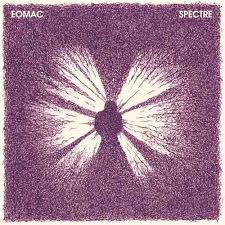If it has never been an international force in dance music on a similar scale to the UK, in reality Ireland has for decades been contributing in parallel, despite being perpetually overshadowed by its larger neighbour. Due to the Emerald Isle’s smaller population and relative isolation, its homebrewed raves developed with noticeable lag; and there has always been a strong presence from UK artists that dominates the creative direction and local listening preferences of audiences. Irish dance artists, like other Irish musicians before them, often left to the neighbouring island seeking a larger audience than the confines of their country would allow. Even allowing for this drain, Ireland managed a small but spirited scene since at least 1990, and those willing to dig will find the expected scattering of material worth noting.
Taking these factors into consideration, the appearance of Dublin’s Lakker as a major artist on the international techno scene in 2012 was not unexpected. Active since 2006, they had already been tapped in 2011 for the fifth release on the then nearly-unknown Killekill label out of Berlin. Its relative obscurity was very soon to change, as it initiated a strong release policy that has since earned it well-deserved notice. Next up was a back-to-back pair of 12"s on the legendary and prestigious Blueprint, never a label to drop unneeded material, and with this, the duo’s continued relevance was assured as they moved forward making challenging music for Stroboscopic Artefacts, Candela Rising, and recently the resurgent R&S Records. It is also little surprise that Ian McDonnell, who is half of Lakker and records prolifically under the Eomac alias, is attracting his own bit of attention with his diverse and increasingly interesting solo material.
Spectre is actually McDonnell’s second album under his Eomac alias, and, like the first, it is comprised of a selection of tracks taken from the last few years of his work. It’s also the first artist album on Killekill, a label that has consistently supported his music and whose dirty and diverse sonic palette is a good fit for an album that matches that exact description. Techno may be the theme running through most of these tracks, but it is heavily filtered through the UK hardcore continuum and shows both the producer’s involvement in Ireland’s bass and dubstep scene as well as his reverence for old school hardcore and rave. Outsider music this is not, but the experimentalism evident in Lakker’s work overflows clearly into these tracks – he moves fluidly between more techno-centered confines – but he also works with a range of sounds and tempos that channel his own influences.
The two pieces called "riddims" here offer a clear indication of his debt to UK soundsystem culture, and they combine with another pair, ‘Forest’ and ‘Rising 3’, to comprise about a third of the album’s length. The nods to the UK are most explicit in these four tracks, but the influences in each are not easily reducible as they fall somewhere between hardcore, dubstep, jungle, and garage. His freeform borrowing from different styles places him closest to the anything-goes idea of early-90s rave, and on the cheekily-titled ‘Deeva’, he openly pokes fun at this method by using a thoroughly processed and garbled rave diva vocal sample as the tune’s basis, deconstructing it in pitch, cadence, and intent, and framing it around more evidently modern production design.
The remaining five pieces on the album, except for the brief closer ‘Squink’, are all techno tracks, but these too range in tempo and intent; from raved-up bangers and heads-down numbers that reveal a certain Millsean slant, to low-tempo efforts with specific debt to the likes of Andy Stott and Samuel Kerridge. With their reduced tempos and thick coats of grime and distortion, the title track and ‘Rainmaker’ are not quite in Modern Love territory, but they betray a similar combination of hardcore influence and experimentalism, particularly in the breakdown of the latter. He rubs this hard against ‘Shell Of Dark’, which keeps the distortion intact but raises the tempo significantly and includes another bizarre, impressionistic breakdown based around layers of delayed synthesiser sequences that build into a hanging, rhythmic curtain of repeated tones before being blasted into oblivion by intense, growling noise. ‘Crackts’ and ‘You Hun Ye Gul’ are even faster yet, with the latter showing again a distinct Mills influence in its floating, repeated flute-like melody, and the former also using a woodwind-esque lead over grinding, distorted techno beats. A digital bonus included in the limited edition, ‘Sun Obelisk’, is easily the most conventional techno effort and a reasonable omission when compared to the stranger material that comprises the rest of the album.
While Spectre is held together by decayed production values and its various incorporations of old-school rave tropes, it is clear that MacDonnell is more interested in forward movement than settling on one personal musical idiom. If based on a different cross section of musical ideas, this approach is reminiscent of producers like MGUN, who likewise unify their work via a distinctive production aesthetic rather than a single particular musical style. This is partially attributable to the current climate in club music, which is less concerned with strict divisions between genres and subgenres and allows producers with imagination a broader field to work in. With Lakker and MacDonnell having recently made the move to Berlin and its hyper-focused atmosphere, we can hope they keep this sense of openness intact. For now, Eomac and Killekill have turned in a viscerally satisfying full-length, one that shows MacDonnell’s own accomplished takes on the various musical forms that have brought him to where he stands today.
<div class="fb-comments" data-href="http://thequietus.com/articles/15855-eomac-spectre-review” data-width="550">


